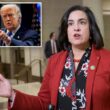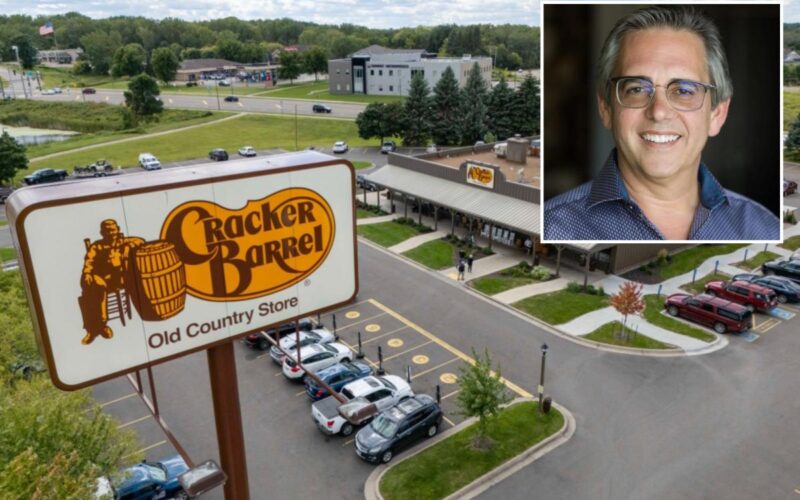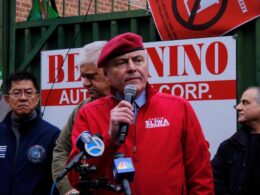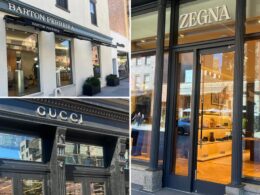Cracker Barrel shareholders voted Thursday to oust board member and DEI marketing executive Gilbert Dávila in the wake of the branding crisis that wiped out hundreds of millions of dollars in value, but spared CEO Julie Felss Masino.
The binding vote capped months of turmoil triggered by Masino’s decision to replace the chain’s well-known “Old Timer” logo with a stripped-down design that ignited a political backlash, alienated core diners and sent traffic and shares plunging.
The revolt placed Masino and Dávila squarely in the crosshairs of activist investor Sardar Biglari, who blamed them both for the rebrand and what he called years of mismanagement.
Yet when ballots were tallied Thursday, only one of them paid the price, according to The Wall Street Journal.
Cracker Barrel announced that a majority of shareholders voted to keep Masino on the board.
Dávila, a marketing and diversity specialist who sat on Cracker Barrel’s public responsibility committee, failed to secure enough votes and resigned. The company immediately cut the size of its board to nine directors.
Back in August, Masino defended the chain’s minimalist new logo removing “Uncle Herschel” as a practical highway-visibility upgrade.
“Part of this transformation is setting up success for the long term,” she said at the time.
The redesign also included remodeled dining rooms and updated marketing crafted with consulting firm Prophet.
The backlash was immediate and explosive as loyal diners accused the chain of erasing its heritage.
President Donald Trump urged Cracker Barrel to abandon the change, writing, “Cracker Barrel should go back to the old logo, admit a mistake based on customer response (the ultimate Poll), and manage the company better than ever before.”
Five days later, as sales cratered and affiliates revolted, Cracker Barrel reversed course on the rebrand.
The retreat did not stop the company’s slide. Traffic dropped 8% in the weeks after the rollout. Shares sank nearly 10% in a day, then kept plunging, eventually tumbling more than 50% from mid-August highs.
The chain lost market share among Republican diners — its most loyal base — and fell from the fastest-growing breakfast brand to last place, according to Consumer Edge data.
Masino conceded the misstep on a September earnings call, pledging to “lean into Uncle Herschel and the nostalgia around the brand.”
But Biglari, who has waged seven proxy battles against Cracker Barrel since 2011, seized the moment.
He accused the board of mismanagement and blasted Masino’s leadership.
“Cracker Barrel’s share price continues to decline,” read a statement from Biglari Capital last week.
“We believe that only a new CEO with relevant turnaround experience in company-operated restaurants can fix the business and reverse the massive losses that Cracker Barrel shareholders have suffered under CEO Julie Masino.”
Masino publicly pushed back, saying, “Mr. Biglari’s playbook … is making many misinformed statements,” while warning that his campaign was destabilizing the chain.
But the proxy war gained momentum when advisory firms ISS and Glass Lewis recommended voting against Dávila, citing the board’s oversight failures and the rebrand debacle.
The company released a brief statement thanking Dávila for his five years of service, citing his contributions to the chain’s strategic plan and public-responsibility work.
Dávila’s removal now leaves Masino in full control of a recovery effort that has yet to stabilize the business. The stock had fallen nearly 5% as of Thursday afternoon.
The Post has sought comment from Cracker Barrel.








